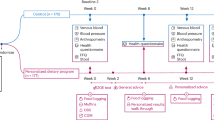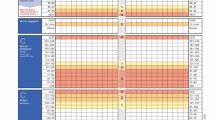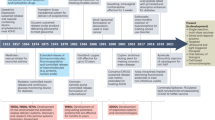Abstract
Objective
Reflecting disparities across the US, in 2015 publicly insured patients of the NorthShore Community Health Center (NSCHC) in Evanston, Illinois had lower breastfeeding rates than commercially insured patients. We used the Replicating Effective Programs framework to describe the design and implementation of a clinically-integrated breastfeeding peer counseling (ci-BPC) program to address these disparities.
Study design
Patient focus groups and surveys informed program design, and a multidisciplinary clinical support team developed workflows that integrated the breastfeeding peer counselor (BPC) into the clinic and the postpartum unit.
Results
ci-BPC improved breastfeeding intensity and duration by providing every NSCHC patient with (1) prenatal lactation education; (2) hands on lactation care in the hospital; and (3) on-demand postpartum support. Total cost per patient was $297–386. The program was sustained after demonstrating potential cost-savings.
Conclusion
An evidence-based, multidisciplinary collaboration resulted in a sustainable clinically integrated breastfeeding peer counseling program that improved breastfeeding outcomes.
This is a preview of subscription content, access via your institution
Access options
Subscribe to this journal
Receive 12 print issues and online access
$259.00 per year
only $21.58 per issue
Buy this article
- Purchase on Springer Link
- Instant access to full article PDF
Prices may be subject to local taxes which are calculated during checkout


Similar content being viewed by others

Data availability
The datasets generated during and/or analyzed during the current study are available from the corresponding author on reasonable request.
References
USDA/USHHS. Dietary Guidelines for Americans, 2020–2025. 2020 9th Edition: Available from: www.DietaryGuidelines.gov.
Meek JY, Noble L, Breastfeeding So. Policy Statement: Breastfeeding and the Use of Human Milk. Pediatrics 2022;150:e2022057988.
WHA71.9. 75th World Health Assembly: Statement on Infant and Young Child Feeding 2018 Available from: https://www.who.int/health-topics/breastfeeding#tab=tab_2.
Vilar-Compte M, Pérez-Escamilla R, Ruano A. Interventions and policy approaches to promote equity in breastfeeding. Int J Equity Health. 2022;21:63.
Gonzalez-Nahm S, Grossman ER, Benjamin-Neelon SE. The role of equity in US States’ breastfeeding policies. JAMA Pediatr. 2019;173:908–10.
Mahoney SE, Taylor SN, Forman HP. No such thing as a free lunch: The direct marginal costs of breastfeeding. J Perinatol. 2023;43:678–82.
Temple Newhook J, Newhook LA, Midodzi WK, Murphy Goodridge J, Burrage L, Gill N, et al. Poverty and breastfeeding: comparing determinants of early breastfeeding cessation incidence in socioeconomically marginalized and privileged populations in the FiNaL Study. Health equity. 2017;1:96–102.
O’Brien R, Neman T, Seltzer N, Evans L, Venkataramani A. Structural racism, economic opportunity and racial health disparities: evidence from US counties. SSM-Popul Health. 2020;11:100564.
Bishop-Royse J, Lange-Maia B, Murray L, Shah R, DeMaio F. Structural racism, socio-economic marginalization, and infant mortality. Public Health. 2021;190:55–61.
NIMHD. National Institute on Minority Health and Health Disparities Research Framework 2017 [Available from: https://nimhd.nih.gov/researchFramework.
Butler MS, Smart BP, Watson EJ, Narla SS, Keenan-Devlin L. U.S. breastfeeding outcomes at the intersection: differences in duration among racial and ethnic groups with varying educational attainment in a nationally representative sample. J Hum Lact. 2023;39:722–32.
Gianni ML, Bettinelli ME, Manfra P, Sorrentino G, Bezze E, Plevani L, et al. Breastfeeding difficulties and risk for early breastfeeding cessation. Nutrients 2019;11:2266.
Britton C, McCormick FM, Renfrew MJ, Wade A, King SE. Support for breastfeeding mothers. Cochrane Database Syst Rev. 2007:CD001141. Update in Cochrane Database Syst Rev. 2012;5:CD001141.
Chung M, Raman G, Trikalinos T, Lau J, Ip S. Interventions in primary care to promote breastfeeding: an evidence review for the U.S. Preventive Services Task Force. Ann Intern Med. 2008;149:565–82.
Louis-Jacques AF, Vereen S, Hernandez I, Običan SG, Deubel TF, Miller EM, et al. Impact of doula-led lactation education on breastfeeding outcomes in low-income, minoritized mothers. J Perinat Educ. 2021;30:203–12.
Seals-Allers K. The big letdown: how medicine, big business, and feminism undermine breastfeeding. First edition. ed. New York: St. Martin’s Press; 2017. 290.
Swanson V, Power K, Kaur B, Carter H, Shepherd K. The impact of knowledge and social influences on adolescents’ breast-feeding beliefs and intentions. Public Health Nutr. 2006;9:297–305.
Rossman B. Breastfeeding peer counselors in the United States: helping to build a culture and tradition of breastfeeding. J Midwifery Women’s Health. 2007;52:631–7.
USDA. WIC 2017 Eligibility and Coverage Rates 2017
LLLI. Structure of LLL 2021 Available from: https://www.llli.org/about/whos-who-in-la-leche-league/structure-of-llli/.
WIC Works Resource System UDoA. WIC Breastfeeding Model Components for Peer Counseling 2023 Available from: https://wicworks.fns.usda.gov/resources/wic-breastfeeding-model-components-peer-counseling.
Kozhimannil KB, Attanasio LB, Hardeman RR, O’Brien M. Doula care supports near-universal breastfeeding initiation among diverse, low-income women. J Midwifery Women’s Health. 2013;58:378–82.
Kozhimannil KB, Hardeman RR, Attanasio LB, Blauer-Peterson C, O’Brien M. Doula care, birth outcomes, and costs among Medicaid beneficiaries. Am J Public Health. 2013;103:e113–21.
Kozhimannil KB, Vogelsang CA, Hardeman RR, Prasad S. Disrupting the pathways of social determinants of health: doula support during pregnancy and childbirth. J Am Board Fam Med. 2016;29:308–17.
Thomas MP, Ammann G, Brazier E, Noyes P, Maybank A. Doula services within a healthy start program: increasing access for an underserved population. Matern Child Health J. 2017;21:59–64.
MacDorman MF, Declercq E. Trends and state variations in out-of-hospital births in the United States, 2004-2017. Birth. 2019;46:279–88.
Osterman MJK, Martin JA. Timing and adequacy of prenatal care in the United States, 2016. Natl Vital Stat Rep. 2018;67:1–14.
Anderson AK, Damio G, Young S, Chapman DJ, Pérez-Escamilla R. A randomized trial assessing the efficacy of peer counseling on exclusive breastfeeding in a predominantly Latina low-income community. Arch Pediatr Adolesc Med. 2005;159:836–41.
Caulfield LE, Gross SM, Bentley ME, Bronner Y, Kessler L, Jensen J, et al. WIC-based interventions to promote breastfeeding among African-American Women in Baltimore: effects on breastfeeding initiation and continuation. J Hum Lact. 1998;14:15–22.
Chapman DJ, Damio G, Young S, Pérez-Escamilla R. Effectiveness of breastfeeding peer counseling in a low-income, predominantly Latina population: a randomized controlled trial. Arch Pediatr Adolesc Med 2004;158:897–902.
Merewood A, Chamberlain LB, Cook JT, Philipp BL, Malone K, Bauchner H. The effect of peer counselors on breastfeeding rates in the neonatal intensive care unit: results of a randomized controlled trial. Arch Pediatr Adolesc Med. 2006;160:681–5.
Pugh LC, Milligan RA, Frick KD, Spatz D, Bronner Y. Breastfeeding duration, costs, and benefits of a support program for low-income breastfeeding women. Birth. 2002;29:95–100.
Gross SM, Caulfield LE, Bentley ME, Bronner Y, Kessler L, Jensen J, et al. Counseling and motivational videotapes increase duration of breast-feeding in African-American WIC participants who initiate breast-feeding. J Am Dietetic Assoc. 1998;98:143–8.
Hopkinson J, Konefal Gallagher M. Assignment to a hospital-based breastfeeding clinic and exclusive breastfeeding among immigrant Hispanic mothers: a randomized, controlled trial. J Hum Lact. 2009;25:287–96.
Reeder JA, Joyce T, Sibley K, Arnold D, Altindag O. Telephone peer counseling of breastfeeding among WIC participants: a randomized controlled trial. Pediatrics. 2014;134:e700–e9.
Wambach KA, Aaronson L, Breedlove G, Domian EW, Rojjanasrirat W, Yeh H-W. A randomized controlled trial of breastfeeding support and education for adolescent mothers. West J Nurs Res. 2010;33:486–505.
Srinivas GL, Benson M, Worley S, Schulte E. A clinic-based breastfeeding peer counselor intervention in an urban, low-income population: interaction with breastfeeding attitude. J Hum Lact. 2014;31:120–8.
Bronner Y, Barber T, Vogelhut J, Resnik AK. Breastfeeding peer counseling: results from the National WIC Survey. J Hum Lact. 2001;17:119–25.
Chapman DJ, Morel K, Anderson AK, Damio G, Perez-Escamilla R. Breastfeeding peer counseling: from efficacy through scale-up. J Hum Lact. 2010;26:314–26.
Morrow AL, Guerrero ML, Shults J, Calva JJ, Lutter C, Bravo J, et al. Efficacy of home-based peer counselling to promote exclusive breastfeeding: a randomised controlled trial. Lancet. 1999;353:1226–31.
Schafer E, Vogel MK, Viegas S, Hausafus C. Volunteer peer counselors increase breastfeeding duration among rural low-income women. Birth. 1998;25:101–6.
Kilbourne AM, Neumann MS, Pincus HA, Bauer MS, Stall R. Implementing evidence-based interventions in health care: application of the replicating effective programs framework. Implement Sci. 2007;2:42.
Keenan-Devlin LS, Hughes-Jones JY, Borders AEB. Clinically integrated breastfeeding peer counseling and breastfeeding outcomes. J Perinatol. 2021;41:2095–103.
Bartick MC, Schwarz EB, Green BD, Jegier BJ, Reinhold AG, Colaizy TT, et al. Suboptimal breastfeeding in the United States: maternal and pediatric health outcomes and costs. Matern Child Nutr. 2017;13:e12366; erratum in Matern Child Nutr. 2017;13:e12450.
Keenan-Devlin LS, Smart BP, Hirschhorn L, Meier P, Jefferson U, Solomonides A, et al. Clinically integrated breastfeeding peer counseling to promote breastfeeding equity. Am J Perinatol. 2023. https://doi.org/10.1055/s-0043-1771255.
Meier PP, Engstrom JL, Rossman B. Breastfeeding peer counselors as direct lactation care providers in the neonatal intensive care unit. J Hum Lact. 2013;29:313–22.
Acknowledgements
Funding for the NorthShore Community Health Center Breastfeeding Peer Counseling program was provided by the North Suburban Foundation, March of Dimes, the NorthShore Auxiliary (Borders), the Department of Obstetrics and Gynecology at NorthShore University HealthSystem, and the Women’s Hospital lactation service line. The original PAC clinic ci-BPC program was funded by the Pritzker Family Foundation Evergreen Invitational Grant Award (Borders). The authors gratefully acknowledge the clinical, administrative, and research colleagues who supported this project. Special thanks to Paula Meier for her mentorship. We are most grateful to the Breastfeeding Peer Counselors both past and present who provided expert lactation care for the NSCHC and Prentice Ambulatory Center BPC programs, and for HealthConnect One for their support and expertise.
Funding
Financial support for this study provided by the Patient Centered Outcomes Research Institute contract #AD-2020C3-21231 (Borders) and the Agency for Healthcare Research and Quality 1 K01 HS027906-01A1 (Keenan-Devlin).
Author information
Authors and Affiliations
Contributions
Lauren Keenan-Devlin: Conceptualization (lead), Methodology (lead), Investigation (lead), Data Curation (supporting), Resources (lead), Project Administration (equal), Writing – Original Draft (lead), Writing – Review and Editing (equal), Funding Acquisition (equal). Janel Hughes-Jones: Resources (supporting), Data Curation (lead), Writing – Review and Editing (supporting). Tricia Johnson: Conceptualization (supporting), Methodology (supporting), Writing – Review and Editing (equal). Lisa Hirschhorn: Conceptualization (supporting), Methodology (supporting), Writing – Review and Editing (supporting). Ann Borders: Conceptualization (supporting), Methodology (supporting), Project Administration (equal), Writing – Original Draft (supporting), Writing – Review and Editing (equal), Supervision (lead), Funding Acquisition (equal).
Corresponding author
Ethics declarations
Competing interests
The authors declare no competing interests.
Additional information
Publisher’s note Springer Nature remains neutral with regard to jurisdictional claims in published maps and institutional affiliations.
Rights and permissions
Springer Nature or its licensor (e.g. a society or other partner) holds exclusive rights to this article under a publishing agreement with the author(s) or other rightsholder(s); author self-archiving of the accepted manuscript version of this article is solely governed by the terms of such publishing agreement and applicable law.
About this article
Cite this article
Keenan-Devlin, L.S., Hughes-Jones, J.Y., Johnson, T. et al. Implementation of a clinically integrated breastfeeding peer counselor program. J Perinatol (2024). https://doi.org/10.1038/s41372-024-01995-3
Received:
Revised:
Accepted:
Published:
DOI: https://doi.org/10.1038/s41372-024-01995-3


